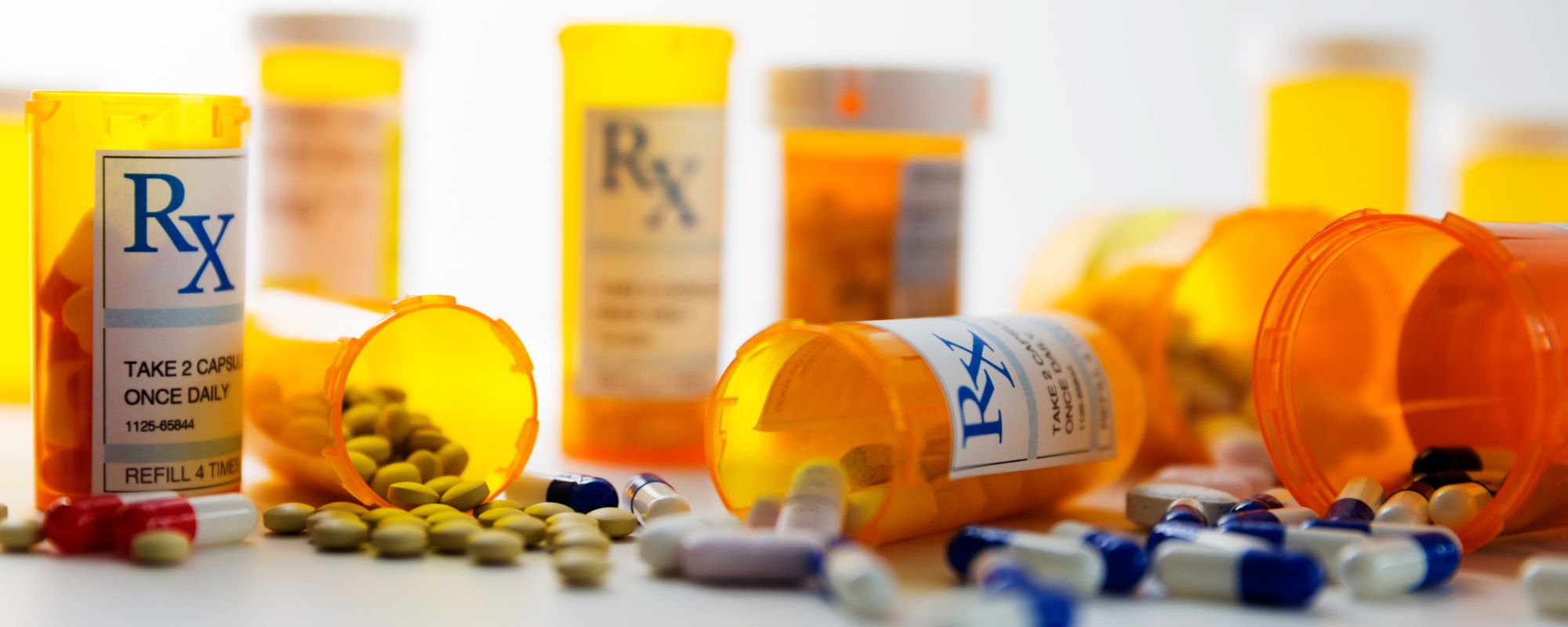What Is Adderall?
Adderall is a prescription medication that assists in the treatment of narcolepsy and attention deficit hyperactivity disorder (ADHD). However, Adderall is commonly abused for its energizing and mood-enhancing effects. Adderall is comprised of two central nervous system stimulants—dextroamphetamine and amphetamine. Stimulants like Adderall help to increase attention span, regulate careless behaviors, and sharpen focus. Adderall medication comes in an oral tablet or capsule form. Adderall IR, or instant-release, is the short-acting version which is FDA-approved to treat narcolepsy and ADHD. In addition, Adderall XR, or extended-release, is the long-acting form and only treats ADHD.
Adderall is a Schedule II controlled substance. This indicates that Adderall is controlled by the government due to its potential for abuse or addiction. While the drug is only legal for prescription use, it is commonly abused and misused, especially by college students and young professionals looking to enhance school or work performance.
What Does Adderall Do?
After taking Adderall, the CNS stimulants, dextroamphetamine, and amphetamine trigger multiple reactions in the brain. For example, the introduction of Adderall affects neurotransmitters, such as norepinephrine, dopamine, and serotonin.
- Norepinephrine is a component of the sympathetic nervous system that releases adrenaline throughout the body, triggering its fight-or-flight response (acute-stress response). Increased levels of norepinephrine enhance alertness and attentiveness, while also sharpening focus for enriched performance and increasing alertness in people with narcolepsy.
- Dopamine is one of the four “feel-good hormones” due to the pleasurable feelings it generates. As a result, your body produces it and your CNS uses it to transmit messages to the nerve cells, resulting in feelings or satisfaction and bliss.
- Serotonin, another one of the “feel-good hormones”, influences states like happiness, pleasure, and sleep. When there is a lack of serotonin, you are at risk for depression, anxiety, and/or rage.
Adderall enhances all three of these neurotransmitters and hormones, often producing desirable side effects when taken as prescribed.
Side Effects Of Adderall
Common side effects of Adderall may include:
- Loss of appetite
- Nausea and vomiting
- Headaches
- High blood pressure
- Trouble sleeping
- Dizziness
- Constipation
- Anxiety
These side effects are usually temporary and not detrimental. However, if they worsen and/or last longer than a few weeks you should consult your doctor or pharmacist.
Severe side effects of Adderall may include:
- Depression
- Rapid heartbeat
- High blood pressure
- Compulsive thinking or behavior
- Severe anger issues
- Lack of mobility in the skeletal muscles (rhabdomyolysis)
- Extreme allergic reaction
- Blurry vision
- Psychosis
It is important to call your doctor immediately if you are experiencing one or more of these symptoms. This is because these adverse symptoms can be dangerous if left unchecked.
If these symptoms cause distress and appear life-threatening, call 911.
What Does Adderall Do For People Who Don’t Have ADHD?
For people without ADHD or narcolepsy, any consumption of Adderall is a form of misuse and abuse. This type of abuse commonly occurs in universities. Some college students have started relying on this type of stimulant and referring to it as “the study drug” due to its side effects of increased focus and energy. This can be incredibly dangerous when young adults and even teenagers become dependent on this drug to pick them up when it’s crunch time for finals or writing a paper.
Most students will obtain a supply from their doctor, through a friend who already has a prescription, or through people that sell it illegally. When you build up a tolerance for Adderall, you may start feeling like you can’t function without it. This often leads to abuse and addiction. Side effects of Adderall misuse may include:
- An increased desire to work
- Impatience
- Anxiety
- Talkativeness
- Excitement
- Overthinking
Who Gets Prescribed Adderall?
An Adderall prescription can help people with attention deficit hyperactivity disorder (ADHD), attention deficit disorder (ADD), and narcolepsy. Attention-deficit hyperactivity disorder (ADHD) is a mental disorder where an individual is incapable of keeping their focus. For instance, people who have ADHD may face difficulties in settings that require their full attention, make impulsive decisions, and experience excessive movements.
People with ADHD benefit from the medication as it improves their focus and concentration and reduces impulsive behaviors. Attention-deficit disorder (ADD), also referred to as the predominantly inattentive presentation of ADHD, is when you struggle to stay on task or focus. As a common medication for adults with attention deficit disorder, Adderall works to help people maintain their focus and stay on task. This can be especially helpful for people with ADD or ADHD who work in a fast-paced, distracting environment. This is because it assists in suppressing the person’s inattentive behaviors during work hours. The medication is also commonly referred widely known for it’s ability to assist young adults with their studies throughout college.
Narcolepsy is a chronic, neurological sleep disorder that causes overpowering drowsiness during the day and uncontrollable sleep. People diagnosed with narcolepsy often have no control over when they sleep or wake. For this reason, Adderall is a recommended prescription for narcolepsy as it is a stimulant that works to reduce drowsiness and increase energy levels.
What Can Happen If You Abuse Amphetamine Salts?
If you are misusing or abusing Adderall, aka amphetamine salts, you’re more than likely not using a prescription. If you do have a prescription, you’re not using it for its intended purpose.
Adderall misuse signs include:
- Taking a prescription that is not your own
- Mixing the medication with other substances
- Snorting, smoking or injecting the pills
- Taking more or less than the prescribed amount
Many people who abuse Adderall experience:
- Intense cravings
- Drug-seeking behavior
- Inability to quit or control use despite negative effects
- Appetite loss
- Irregular/rapid breathing and heart rate
- High blood pressure and sugar
- Anxiety/paranoia
- Hallucinations
- Drug-induced psychosis
- Tremors
It is important to note that the side effects of Adderall abuse can still occur in people who have a prescription and take their medication as directed. That said, adverse side effects occur most often, and with greater severity, in cases of misuse and abuse.
Though you may think misusing Adderall isn’t really drug abuse since it’s a prescription drug, it can be just as detrimental to your health as illegal drugs—and even fatal. In fact, many people find themselves choosing Adderall over their friends and family, becoming addicted to their studies or job. After an extended period of use, people often need more Adderall to experience the drugs effects. Unfortunately, large amount of stimulants can cause serious damage to the heart. Moreover, the abuse of stimulants can result in chronic psychosis and schizophrenia. Misusing Adderall is not worth the risk considering the drug provides short-term focus that could end in a life-long struggle.
If you or a loved one is abusing Adderall, it’s important to get specialized medical and behavioral addiction treatment to prevent the negative effects of Adderall abuse from destroying your quality of life.












